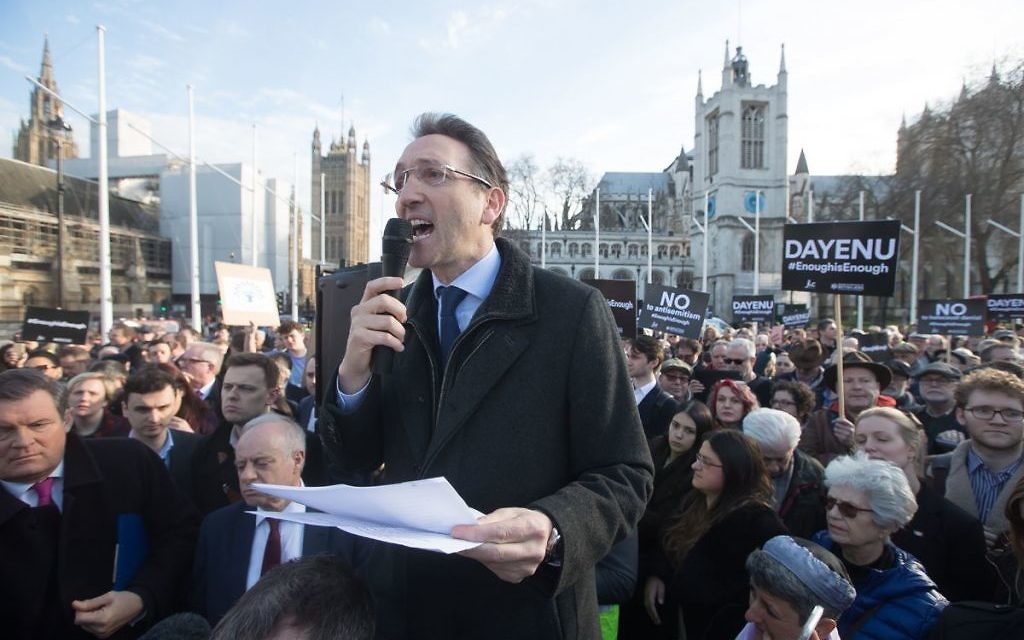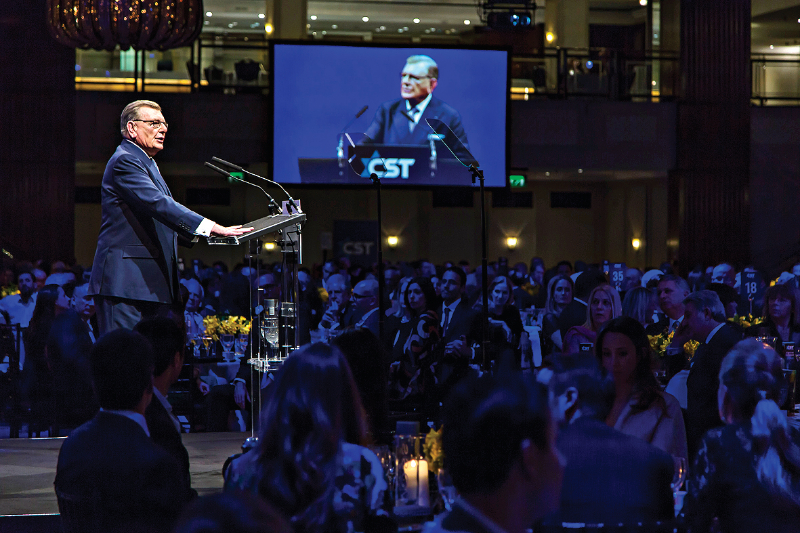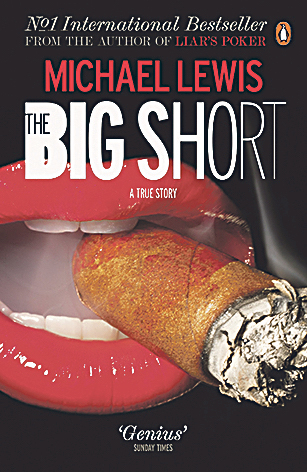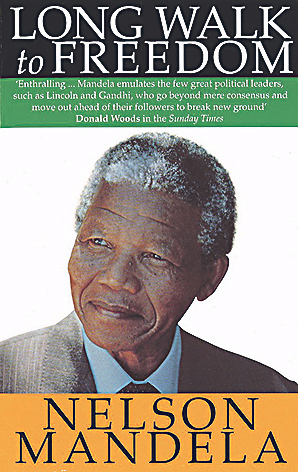Jonathan Goldstein: The books that helped shape my life
In the latest one-to-one with Jewish people who are changing the world, Zaki Cooper talks to businessman and community leader Jonathan Goldstein about the books that inspire him.

Jonathan Goldstein is a British businessman and philanthropist. He has been chairman of the Jewish Leadership Council (JLC) since 2017. He is chairman of the Chief Rabbinate Trust and together with his wife, Sharon, is an inaugural honorary president of Camp Simcha. He is the chief executive and founder of Cain International in the property sector. Previously, he worked with Gerald Ronson at Heron and at the law firm, Olswang, becoming CEO aged 32.
You studied law at Manchester University and went to Olswang, becoming a partner at 28 and CEO at 32. What did you like about law?

I always liked the idea of fairness and being able to argue someone else’s position as well as understanding things from their perspective and trying to execute against their wishes. I found the practical elements of the law much more interesting than I did the academic. For me, life is all about those relationships you create and the law gave me opportunity to create a huge number of them.
Get The Jewish News Daily Edition by email and never miss our top stories Free Sign Up
Talking of the law, the first book you’ve selected is To Kill a Mockingbird by Harper Lee, written in 1960. Why do you like this book?
I’ve been obsessed by this book since I was a kid. I’ve always had this notion of social fairness and social justice. There are two big messages I have always taken with me from To Kill a Mockingbird. The first one is the whole treatment of the black community in America, which is outrageous, and the bravery of Atticus Finch, the father, in standing up to a hostile community. But, more importantly, the overriding message of the book is when Atticus says to the two children: “Make sure you always look at it from the other person’s point of view” and that’s the biggest philosophy I’ve tried to take with me through my life.
You then went to work at Heron for Gerald Ronson, a legendary figure. What did you learn from him?

Gerald is an amazing character and he’s an amazing person to work with, to watch, to study, to listen to. If I could take two principles from Gerald, the first is discipline. He really believes in doing the same thing over and over again so you learn how things operate. The second thing he also taught me is not to rush. If you don’t know what the answer is, take your time, think about it and the answer will come.
You went on to co-found Cain International six years ago. How’s it been going?
We’ve got a big business now. We’re across the UK and Europe and in America. The hardest thing has been the lack of connectivity so I’ve not been able to travel, to see my teams in America. Obviously, very few businesses were positioned for a pandemic. Therefore you’ve had to work hard to make sure you stand still.
Listen to the first clip here:
You are in the thick of the business world and you’ve chosen as your second book The Big Short and various books by Michael Lewis. What attracts you to those?
Over the past 15 to 20 years, the majority of my reading has been non-fiction, biographies and business books. The thing that always stood out for me is the really successful people I’ve met are wired differently. They could be in sport, in art, in business. I love The Big Short because none
of us can understand the strength it took to stand against the entire financial system, to bet against every investment bank that was writing these products.

You have chaired the JLC since 2017 and been at the forefront of the battle against antisemitism in the Labour Party. How has that been?
The biggest conclusion I draw is how proud I am that our community had the strength of character to stand up and say “enough is enough”, to stand up and say we will not be threatened by a man who could be prime minister of this country. We always believed the British public would back that. We’re very proud to be British and for the British people to have made that choice. Rabbi Lord Jonathan Sacks played a huge part in showing us that you could live in British society, be a proud Jew and look at the secular world.
Listen to the second clip here:
You led the community against this prejudice. One of the books you selected is Nelson Mandela’s autobiography, Long Walk to Freedom. Why do you like this book?
Nelson Mandela is, in my view, the standout man in the 20th century. He was subjected to such brutality. He had the ability, when he came out, to exercise revenge on his captors and he chose reconciliation. That’s one of the great moral choices of the 20th century when, at the click of his finger, he could have caused absolute carnage. Linking that in with Natan Sharansky, you couldn’t be involved in the Jewish community without understanding the plight of Soviet Jewry and Sharansky is the modern Jewish hero. My wife and I went to visit Refuseniks in Moscow and Leningrad in 1985/86.

You do so much in the Jewish community aside from the JLC. How do find the time for it all?
When I started in law, I was going to become chair of Kerem and I went to see someone who was the chair of Immanuel College and asked him how he coped. And he said: “I treat it like another client; if there’s something to be done it doesn’t get relegated. I just do it.” I was brought up in a family where it wasn’t optional – it was part of our existence. Our big problem in the community is not that we don’t have enough leaders. We don’t have enough followers or volunteers. People always find an excuse. If you want to do it, you’ll find the time.
You’ve also selected The Kite Runner. What’s special about that book for you?
I love the narratives across the countries I’ve visited or would like to. We had a personal connection with Afghanistan, with a close friend who died eight years ago. He taught us a lot. The Kite Runner is set in Kabul and has stories about unfair treatment, which is a consistent theme in what I talk about. The way the book is written, combined with my experience of a man who was born in Kabul and brought his Afghan traditions to London and they live through his kids today, brings a personal touch to that story, which I love.
Listen to the full podcast here:
Jonathan’s top reads:
• To Kill a Mockingbird – Harper Lee
• The Big Short – Michael Lewis
• Long Walk to Freedom – Nelson Mandela
• Fear No Evil – Natan Sharansky
• The Kite Runner – Khaled Hosseini
• The Prime Ministers – Yehuda Avner

Thank you for helping to make Jewish News the leading source of news and opinion for the UK Jewish community. Today we're asking for your invaluable help to continue putting our community first in everything we do.
For as little as £5 a month you can help sustain the vital work we do in celebrating and standing up for Jewish life in Britain.
Jewish News holds our community together and keeps us connected. Like a synagogue, it’s where people turn to feel part of something bigger. It also proudly shows the rest of Britain the vibrancy and rich culture of modern Jewish life.
You can make a quick and easy one-off or monthly contribution of £5, £10, £20 or any other sum you’re comfortable with.
100% of your donation will help us continue celebrating our community, in all its dynamic diversity...
Engaging
Being a community platform means so much more than producing a newspaper and website. One of our proudest roles is media partnering with our invaluable charities to amplify the outstanding work they do to help us all.
Celebrating
There’s no shortage of oys in the world but Jewish News takes every opportunity to celebrate the joys too, through projects like Night of Heroes, 40 Under 40 and other compelling countdowns that make the community kvell with pride.
Pioneering
In the first collaboration between media outlets from different faiths, Jewish News worked with British Muslim TV and Church Times to produce a list of young activists leading the way on interfaith understanding.
Campaigning
Royal Mail issued a stamp honouring Holocaust hero Sir Nicholas Winton after a Jewish News campaign attracted more than 100,000 backers. Jewish Newsalso produces special editions of the paper highlighting pressing issues including mental health and Holocaust remembrance.
Easy access
In an age when news is readily accessible, Jewish News provides high-quality content free online and offline, removing any financial barriers to connecting people.
Voice of our community to wider society
The Jewish News team regularly appears on TV, radio and on the pages of the national press to comment on stories about the Jewish community. Easy access to the paper on the streets of London also means Jewish News provides an invaluable window into the community for the country at large.
We hope you agree all this is worth preserving.
-
By Laurent Vaughan - Senior Associate (Bishop & Sewell Solicitors)
-
By Laurent Vaughan - Senior Associate (Bishop & Sewell Solicitors)
-
By Laurent Vaughan - Senior Associate (Bishop & Sewell Solicitors)
-
By Laurent Vaughan - Senior Associate (Bishop & Sewell Solicitors)





















